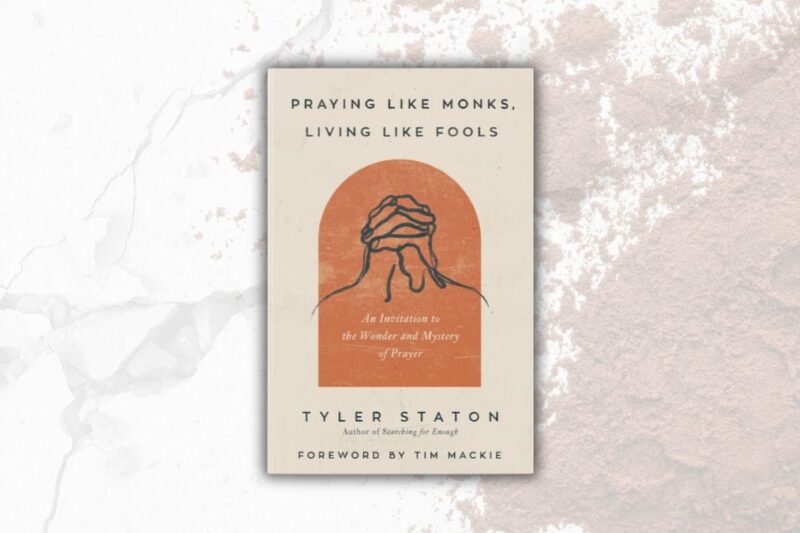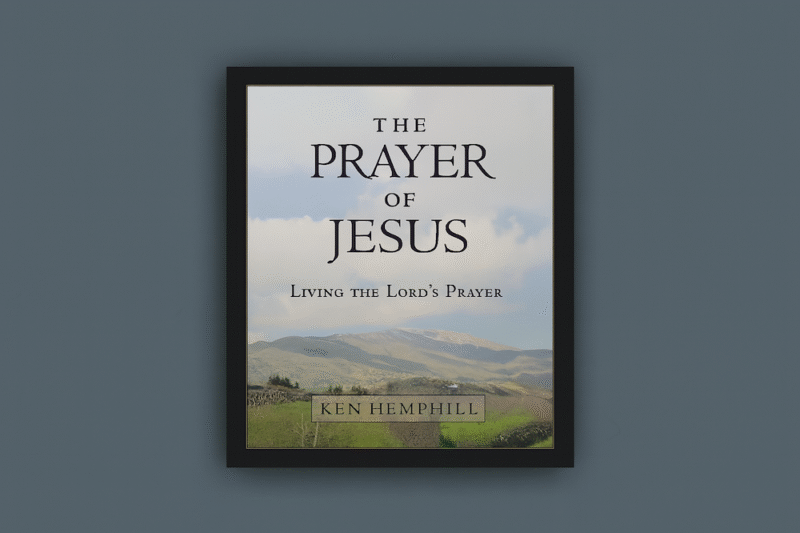
Part story, part teaching, and landing somewhere between his biography Red Moon Rising (story) and God on Mute (teaching), Pete Greig writes Dirty Glory as a book about learning not only to pray effectively, but even more importantly, to act on those prayers as a collaborator in God’s justice and the inbreaking of the kingdom of God. Released in 2016 by NavPress, Greig offers 300 pages of reflections that follow his journey, highlight his takeaways, and teach us that God is as concerned with how our prayers shape us as He is with the words we pray. The foreword comes from adventurer and explorer Bear Grylls. Greig’s thesis is clear: “The Bible teaches that prayer is the most powerful transformational force in the lives of individuals, churches, and even nations” (Greig 2016, xxi). Yet he also reminds us that, for prayer to be truly transformative, “Prayer must outwork itself in action, and so this book is about more than prayer and presence. It is also about mission and justice. It is about the saying of prayers, for sure, but also about the becoming of prayers in a thousand practical ways” (Greig 2016, xxiii).
Dirty Glory: Another Good Read from Greig
Though I may not agree with everything Greig states, I have come to appreciate the way he writes. Several of his books—God on Mute, How to Hear God, and How to Pray—have become works I regularly quote from and return to. Additionally, his Prayer Course, God on Mute course, and Lectio Course are some of my favorite resources to use with small groups of residents at Water Street Mission, where we walk alongside those experiencing homelessness. While I am less likely to revisit Dirty Glory as often as his other works—this one finding its place on the shelf more like Red Moon Rising—I nonetheless appreciated Greig’s transparency, storytelling, and the many accounts where prayer led him into missional investments.
A Book of Stories and Discoveries
Greig reminds us that God is not only concerned with us praying for the kingdom, but also with our partnership in bringing it about. His stories from Boys Town and his connection with Brennan Manning stand out as some of my favorites in this book. Though Greig is often associated with founding the 24-7 Prayer movement, he carefully offers a prophetic warning that feels especially timely: “Everyone these days wants to lead a movement. But the only movement that really matters is that of a solitary soul taking a single step toward Jesus” (Greig 2016, 38). Within my own networks and more broadly among evangelicals, movement language has become increasingly popular. Yet we must be careful not to get caught up in the wrong metrics and misplaced missions.
Reminders on Effective Prayers
There are quite a few takeaways from Greig’s Dirty Glory on the practice of effective prayer. I will highlight just a few of the reminders that especially stood out to me. First, the Lord’s Prayer roots us not only in the character of God but also in God’s love. Effective prayer happens when we truly discover the depth of the Father’s love for us: “Your power in prayer will flow from the certainty that the One who made you likes you, he is not scowling at you, he is on your side” (Greig 2016, 53). Second, Greig’s stories and scriptural explorations remind us that “Our prayers can often be more powerful than we dare to imagine” (Greig 2016, 81).
Third, prayer is an act of deliverance. Greig declares, “Whenever God’s people restore the proper ecology of creation by returning humbly to dependency upon their Creator in prayer, his life begins to overpower sin’s destructive influence at every level”—and in this, we are set free (Greig 2016, 99). Fourth, effective prayer transforms us because, “Ultimately, it is only the presence of God that distinguishes us from everyone else. We drive the same cars, speak the same language, watch most of the same movies, but we are temples of the Holy Spirit. This is what sets us apart in the culture: We are carriers of the presence of God” (Greig 2016, 124). Through prayer, we come to know and embody this reality—the reality of the presence of God.
Finally, Greig reminds us that prayer is not sanitized or detached from the messiness of life—it is effective when we allow ourselves to be invested in the messy places of the world. We do not pray from the outskirts of town, but as ambassadors of Christ in the midst of the areas of brokenness where we are bringing the goodness and good news of Jesus: “Jesus commands us to engage with the needs of our broken world—not just to pray from afar, but to live holy lives in the midst of the mess, just as he did. ‘My prayer is not that you take them out of the world,’ he told the Father, ‘but that you protect them from the evil one’ (John 17:14)” (Greig 2016, 183).
Exploring Intercessory Prayer in Dirty Glory
Another essential part of this book that I appreciated was Greig’s tangent into intercession late in the narrative. Intercessory prayer can often feel difficult because we don’t always know what to pray for, and at times, the weight of needs can feel overwhelming. Greig observes, “Intercession is often instinctive and always important in the midst of any catastrophe, but at such times we may wonder what possible difference our prayers can make. There are at least four reasons why we sometimes fail to truly intercede in the face of terrible disasters: A limited worldview. All too easily we forget, or we doubt, that there is a spiritual reality at work behind the material tragedy unfolding on our screens… A low self-esteem. We may also doubt our authority in Christ and the power that can be released by saying a simple yes to his will and no to the forces of evil… Doubts about prayer. Deep down, we may doubt the power of prayer, questioning its ability to effect change… Practical questions about how to pray. Once we have remembered that there really is a spiritual battle, and that we really do have authority to make a difference, and that Jesus really has promised to answer our prayers…” (Greig 2016, 233).
Greig also provides a framework for how to intercede when we are unsure where to begin. He suggests focusing emergency intercessions during large-scale crises on three particular groups: those afflicted by grief, loss, fear, or trauma; pastors and priests, who need courage to bring Christ’s presence and hope amid suffering; and peacemakers, politicians, and police, who require wisdom and clarity to pursue justice, reconciliation, and aid (Greig 2016, 233–234). Yet, as Greig reminds us, sometimes even beginning to pray does not come easily. In such moments, it may be necessary to start with the deep work of lament before prayer can flow effectively. As he writes, “Intercession, at its most powerful, invariably begins with simple lament: a heavy sigh, silent tears, careful listening to a person’s pain without immediately speaking to solve their problem or correct their theology” (Greig 2016, 235).
About Pete Greig
Pete Greig is the founder of the 24-7 Prayer Movement, a global network devoted to intercession, spiritual formation, and mission. He also serves as Senior Pastor of Emmaus Road Church in Guildford, England. Alongside his leadership, Greig is a widely read author whose works include God on Mute, Dirty Glory, and How to Hear God. In How to Pray, he distills decades of experience in prayer, research, and teaching into a book that is both practical and inviting, offering guidance for those beginning or rediscovering a life of prayer.
Why I Read This Book
As a Doctor of Ministry student at Kairos University, my research focuses on the Lord’s Prayer (Matthew 6:9–13) as both a theological and practical framework for spiritual formation and communal discipleship. My doctoral project, The Way of Life: The Lord’s Prayer as a Path and Framework, brings together biblical scholarship, historical theology, and ministry practice. Because of this focus, I have sought out resources that explore the nature and practice of prayer more broadly. Greig’s book resonates with my research, combining theological depth with pastoral accessibility. It has proven to be a meaningful resource not only for my academic study but also for the ministry contexts where I serve.
Dirty Glory: A Recommendation
Ultimately, what makes Dirty Glory worth reading is not only its teachings on effective prayer but also the way Greig weaves truth through story and his discovery. Greig’s narratives, whether from Boys Town, his encounters with Brennan Manning, or his reflections on intercession, serve to remind us that prayer is not abstract theory but lived reality from a committed follower of Jesus who wants to help others follow Jesus well. Greig invites us to see how prayer both shapes and sends us, transforming not only the words we speak but the lives we live.



